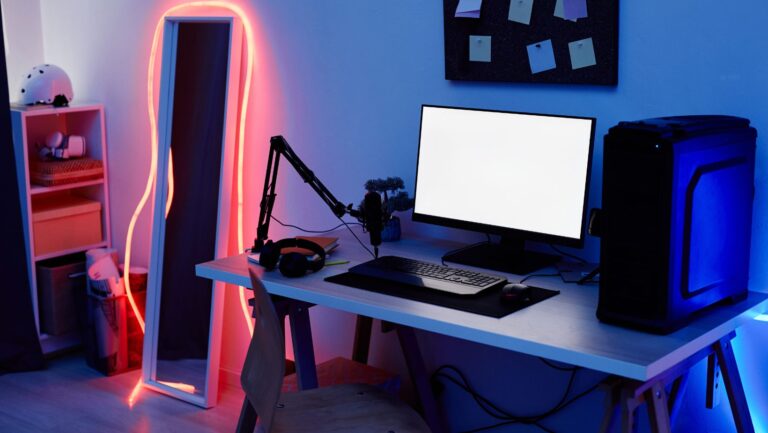Some of the best gaming moments happen after dark. Whether you’re grinding through ranked matches, deep into an RPG campaign, or streaming for your audience, late-night gaming has an undeniable appeal. But pushing through exhaustion can take a toll—slower reaction times, loss of focus, and the dreaded crash can ruin what should be an epic session.
If you want to keep your edge without sacrificing performance (or your health), here’s how to stay sharp and game longer without burning out.
Stay Hydrated
Dehydration is one of the biggest reasons gamers feel sluggish during late-night sessions. While energy drinks and sodas are the go-to for many, they can cause a rapid spike in energy followed by an inevitable crash. Instead, prioritize water to keep your brain functioning at its best.
If you need an energy boost, opt for:
- Green tea or yerba mate: They provide natural caffeine with a more gradual release, therefore reducing jitters.
- Coconut water: Packed with electrolytes to keep you hydrated longer.
- Infused water: Add lemon, cucumber, or berries to make hydration more enjoyable.
The goal is to keep your system running smoothly without sudden highs and lows that mess with your reflexes.
Smart Snacking for Sustained Energy
It’s tempting to grab a bag of chips or some candy when gaming, but junk food can be your worst enemy. Processed carbs and sugars may give you a quick energy boost, but they’re followed by a crash that leaves you feeling drained.
Instead, go for:
- Almonds or mixed nuts: Packed with healthy fats and protein for steady energy.
- Greek yogurt with honey: A mix of protein and natural sugar for sustained fuel.
- Banana with peanut butter: The potassium in bananas helps prevent muscle fatigue, while peanut butter provides protein.
Having these snacks within arm’s reach means you won’t have to interrupt your game for a midnight food run.
Optimize Your Gaming Setup for Alertness
Your environment plays a huge role in how long you can stay focused. If your setup is too dark or your chair isn’t supportive, fatigue will set in faster. Also consider the following:
- Lighting matters: Too much blue light from screens can cause eye strain and disrupt sleep cycles. Use soft ambient lighting to create a balanced setup.
- Good posture = better focus: A supportive chair keeps your spine aligned, prevents discomfort, and improves concentration.
- Room temperature: Keep your space cool (around 65-70°F). A slightly cooler environment helps you stay alert.
A few small adjustments to your setup can make a huge difference in your endurance.
Master the Art of Breaks
It sounds counterintuitive, but stepping away from the screen for short breaks will actually help you stay focused longer. Your brain can only maintain peak concentration for so long before fatigue sets in.
Try the 90-minute rule: Every hour and a half, take a 5-10 minute break. Use this time to:
- Stretch or do light movement: Reduces stiffness and boosts circulation.
- Look away from the screen: Give your eyes a rest to prevent strain.
- Take deep breaths: Oxygen intake refreshes your mind and helps reset focus.
Short, intentional breaks prevent mental burnout and keep your gaming performance sharp.
Natural Focus Boosters Over Stimulants
Caffeine and sugar might feel like the ultimate late-night power-up, but they often lead to energy crashes. If you want a smoother and more sustainable focus boost, natural alternatives are worth considering.
CBD, for example, has gained popularity among gamers for its potential to enhance focus, reduce anxiety, and support relaxation without the jittery side effects of caffeine. If you’re curious about trying it out, Hemp Haven offers a variety of products designed to support balance and focus during long gaming sessions.
Know When to Power Down
One of the biggest challenges in late-night gaming is knowing when to stop. The “just one more match” mindset can keep you playing until the sun comes up—but at a cost. Sleep deprivation leads to slower reflexes, poor decision-making, and, ultimately, a decline in gaming performance.
Signs you need to call it a night:
- Your reaction time starts slipping: If you’re consistently getting outplayed in fights you’d normally win, fatigue is setting in.
- You’re tilting: Frustration and bad decision-making mean your brain is running on empty.
- You can’t focus on the game: If you keep zoning out or forgetting objectives, it’s time for sleep.

Gaming is best when you’re at your peak, so listen to your body. Getting solid rest ensures you’ll come back stronger and ready to dominate the next day.


